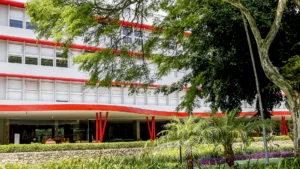This one policy paper is the result of the Future of work and gig economy, developed by the Center for Teaching and Research in Innovation (CEPI) at FGV Direito SP, and is dedicated to identifying problems and possible regulatory paths to face the challenges that mark work in gig economy. This document was prepared based on the Regulatory Impact Analysis model proposed in Decree No. 10,411/2020 and is guided by the following questions:
• What are the problems related to work in the gig economy?
• What and for whom are the present and future burdens and benefits arising from the regulation of these problems?
• What are the regulatory alternatives to face some related problems
to work in gig economy?
By identifying them, we seek to analyze: (i) which problems can be solved or, at least, minimized based on the regulatory options identified? (ii) what are the possible consequences of each regulatory alternative?
Based on these questions, this policy paper It is structured into three large parts. Initially, we present a map of problems – extracted from jurisprudence, projects of
law and the bibliography consulted – which surround work in the gig economy. In sequence,
We debate burdens and benefits, present and future, related to these problems. And, for
Finally, regulatory alternatives are presented to face the problems mentioned
more frequently in the mapping carried out.
Good reading!
DOWNLOAD THE STUDY HERE
DATASHEET
FORMAT
Policy paper
REALIZATION
The research “Future of work and gig economy: regulatory issues on technology and social protection” is developed by the Center for Teaching and Research in Innovation at FGV Direito SP (CEPI FGV Direito SP) within the scope of the collaboration between CEPI and iFood to promote the public debate about the future of work. The activities developed within the scope of this collaboration are carried out with total academic autonomy, guaranteed contractually. The team is grateful for the reviews and valuable contributions from CEPI researchers.
Overall coordination
Alexandre Pacheco da Silva and Marina Feferbaum
TEAM
Research leader
Ana Paula Camelo
Research Co-Leader
Guilherme Forma Klafke
Researchers
Ana Carolina Rodrigues Dias Silveira
Arthur Cassemiro Bishop
Bruno Ett Bicego
Gabriela Marcassa Thomaz de Aquino
Olivia Q. Figueiredo Pasqualeto


